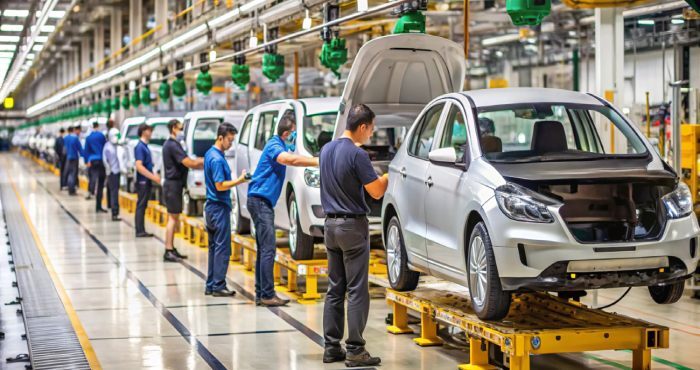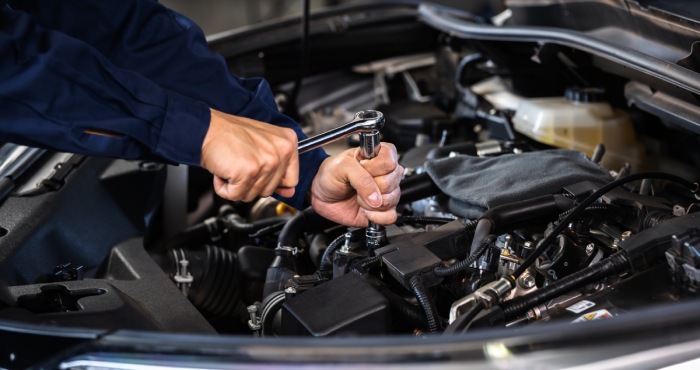The Song-Beverly Consumer Warranty Act, commonly referred to as California’s Lemon Law, aims to safeguard buyers and lessees of faulty automobiles. Nevertheless, not every conflict leads to a courtroom battle. A significant number of cases are settled through arbitration, a method colloquially known as the “arbitration orchard,” where impartial judgments are made rather than engaging in confrontational legal proceedings.
Understanding the Roots of Arbitration in Lemon Law
Arbitration serves as an alternative to conventional court litigation, where a neutral arbitrator — typically experienced in legal or automotive issues — evaluates the conflict and renders a decision. In the case of binding arbitration, the ruling is conclusive and can be enforced, whereas non-binding arbitration permits either party to decline the result and proceed to court.
In Lemon Law disputes, arbitration offers a quicker, more affordable alternative to court. It’s less formal and doesn’t always require a lawyer, though legal help can be useful. State-certified programs, regulated by the California Department of Consumer Affairs, help keep the process fair for both consumers and manufacturers.
The Path to Arbitration: How It Works
Assessing Qualification
Before starting arbitration, consumers need to confirm their vehicle qualifies under California’s Lemon Law. A car is considered a “lemon” if it has a major warranty-covered defect, multiple failed repair attempts, or has been out of service for over 30 days. Meeting these conditions allows the consumer to pursue compensation or a replacement.
Submitting an Application
Consumers have the option to request arbitration through a manufacturer program recognized by the state or via the California Department of Consumer Affairs. They are required to submit various documents, including the purchase or lease agreement, maintenance records, warranty information, and any correspondence with the dealer or manufacturer.
Arranging and Conducting the Hearing
After the application is filed, a hearing will be arranged — either face-to-face, virtually, or via telephone. During this hearing, both the consumer and the manufacturer will present their respective evidence, while the arbitrator examines the case and poses questions to gain a comprehensive understanding of the issue at hand.
Issuing the Ruling
Upon evaluating all submitted evidence, the arbitrator will render a decision, typically within 40 days. The ruling may result in a vehicle being replaced, a refund issued, reimbursement for repairs, or a denial if the claim lacks merit.
Harvesting Justice: Benefits of Arbitration
- Rapid and Streamlined Outcomes: Arbitration usually wraps up in a timeframe of one to two months, in stark contrast to conventional lawsuits, which can extend for a year or longer. This allows consumers to obtain faster resolutions and proceed without enduring extended periods of uncertainty.
- Affordable Solutions: Many arbitration programs do not cost consumers anything, as manufacturers typically cover the administrative expenses. This provides an economical option for individuals to assert their rights without facing substantial legal costs.
- Impartial and Knowledgeable Rulings: Arbitrators are skilled professionals well-versed in Lemon Law regulations and automotive technology. Their expertise ensures that decisions are grounded in factual information, fairness, and technical knowledge rather than mere legal tactics.
- Relaxed Experience: Arbitration eliminates the formalities and pressures of court proceedings, making it less daunting for consumers. The emphasis is on reaching a resolution instead of engaging in confrontational disputes.
Arbitration in Lemon Law cases in Borrego Springs, California, offers consumers a faster and more cost-effective way to resolve disputes with vehicle manufacturers.
Challenges Within the Arbitration Grove
- Concerns Over Manufacturer Influence: Some critics express worries that arbitration programs managed by manufacturers may have a bias toward automakers, particularly if they are the ones financing these processes. It’s essential for consumers to check if the program is certified by the state to ensure it adheres to neutrality standards.
- Narrow Options for Appeals: In cases of binding arbitration, consumers face significant limitations when trying to contest an unfavorable decision. This highlights the importance of providing compelling evidence and thorough documentation from the outset.
- Limited Legal Recourse: Arbitration typically restricts the amount of damages and attorney fees compared to traditional court proceedings. For those seeking complete compensation, pursuing litigation in court may offer more extensive options.
- Challenges in Presenting Evidence: Consumers who do not have legal representation may find it difficult to present their evidence effectively. Therefore, being well-prepared and having proper documentation is crucial for achieving a favorable outcome.
Tips for Navigating the Arbitration Orchard
To navigate California Lemon Law arbitration, carefully document all repairs, invoices, and communications, making sure each repair order details the issue and work done. Use only state-certified arbitration programs for fairness and compliance. Organize evidence chronologically, summarize how the defect affects your vehicle, and gather witness statements if needed.
Although arbitration is intended to be a straightforward process, seeking advice from a Lemon Law attorney can bolster your case. After the arbitration decision, understand your choices: if you prevail, the manufacturer is obligated to act promptly; if you do not succeed in non-binding arbitration, you retain the right to initiate court proceedings.
The Role of the Lemon Law Lawyer: The Skilled Gardener
Consider Lemon Law Lawyer as expert cultivators nurturing the field of arbitration. They:
- Prepare cases meticulously, backed by robust evidence.
- Counteract the defenses put forth by manufacturers.
- Secure more favorable settlements.
- Safeguard clients against deceptive arbitration strategies.
By engaging a proficient lawyer, consumers can strengthen their claims and enhance their likelihood of achieving a fruitful outcome — justice and compensation.
Snapshot of Lemon Law Arbitration Outcomes in California
| Statistic | Description | Source |
| 65% | Lemon Law disputes resolved via arbitration. | DCA Report 2024 |
| 82% | Cases closed within 40 days. | Arbitration Review 2024 |
| 70% | Consumer satisfaction rate. | CPB Survey 2023 |
| 45% | Result in buybacks or replacements. | Lemon Law Stats 2024 |
| $3,500 | Average savings on legal costs. | Legal Insights 2025 |
Cultivating Fairness in California’s Lemon Law Grove
Arbitration under California’s Lemon Law offers a fair, efficient, and cost-effective way for consumers to resolve disputes with manufacturers. Working with a Lemon Lawyer in San Diego can help ensure you are fully prepared and your case is presented effectively. With the right guidance, consumers can navigate the process confidently and secure the justice they deserve.





